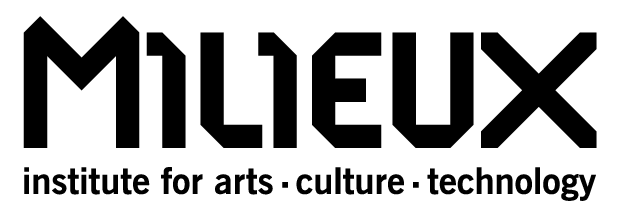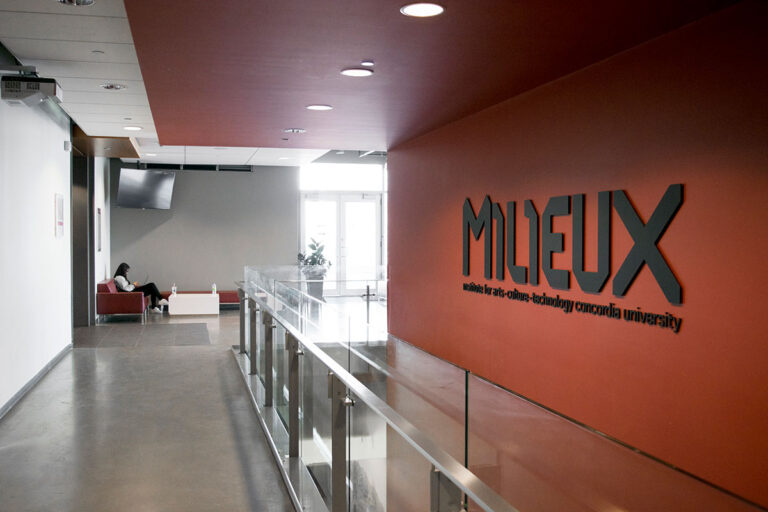In his opening remarks, EthnoLab director Kregg Hetherington took us back to the lab’s beginnings as an experiment within the university, born out of the desire to create a space for people from all disciplines – faculty and students alike – to come together to imagine what ethnography could be. Just a handful of years since its inauguration, the Lab has proven fruitful in enabling and sheltering speculative encounters among people, practices, and conceptual fields, bringing to life projects of all kinds.
At the open house, some of the Lab’s projects (long-term and recent) were presented and discussed, such as Montreal Waterways, Infrastructures of Ethnography (their new SSHRC-funded project), and the EthnoBlab (their wonderful blog). The event had an excellent turnout, with over 30 people present, all energized and ready to map out and discuss new and ongoing projects.
Even if the Lab managed to adapt to the virtual and hybrid reality imposed by the circumstances of the pandemic, as their new coordinator Maya Lamothe-Katrapani noted, this fully in-person encounter reminded us of the importance of nurturing locality, intimacy, and community. We had the chance to reconnect with each other in physical proximity, not to remain isolated, but to build synergies with the outside, with other groups, other labs, and universities across Canada.
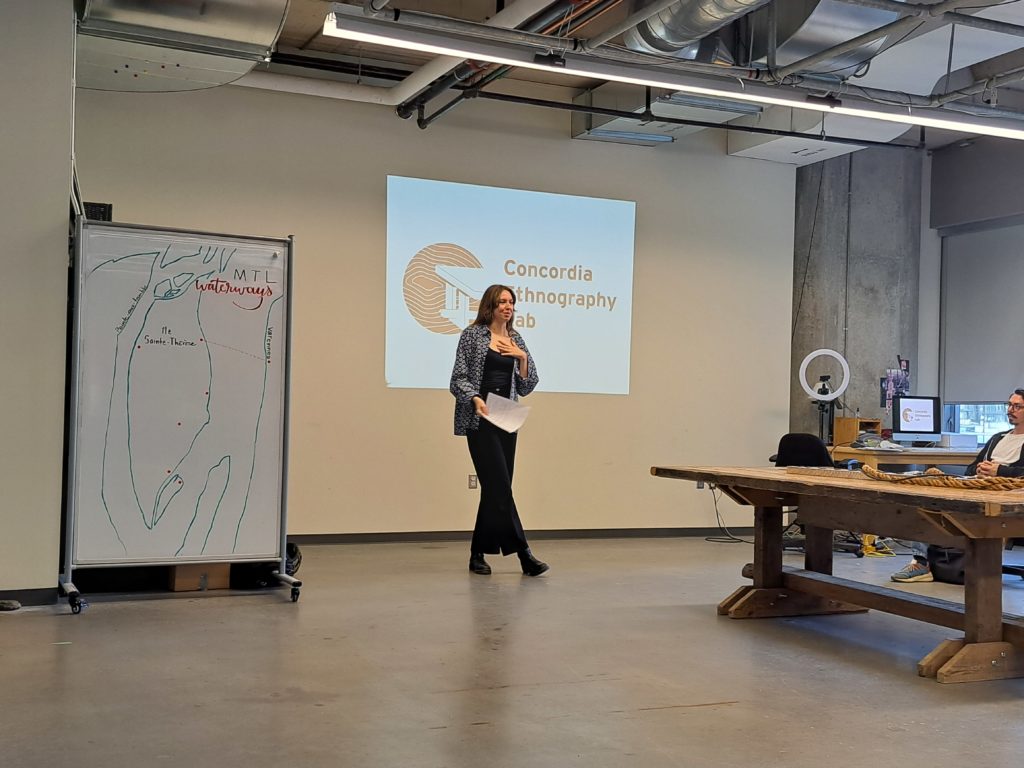
Such local and collective aspects are mirrored in this year’s activities. For those who could not be present, here is a recap of some projects discussed:
Montreal Waterways – 2021/2022 Île-Sainte-Thérèse
How do we tell the story of an island?, a bright screen interrogated as John Neufeld, project coordinator, introduced us to the activities of the Montreal Waterways research group: “While local governments celebrate plans to develop Île-Sainte-Thérèse into an eco-park with an objective of enhancing and protecting the island’s landscape and heritage, generations of island residents are facing the inevitable eviction from the island. Over the past year, Montreal Waterways has conducted collaborative ethnographic research on Île-Sainte-Thérèse and with its residents, forming relationships by piecing together the story of an island.”
A number of the group’s multimodal creations were exhibited. An installation invited the audience to experience the island’s multispecies relationships through a set of short creative pieces, while a selection of photographs of the local natural landscape by the talented Maya Lamothe Katrapani allowed us to palpate and relive the group’s fieldwork experiences.
This year Waterways is taking up a new direction, with the incorporation of Dr. Theresa (Isa) Arriola, professor in the Department of Sociology and Anthropology, whose work focuses on critical Indigenous studies, militarization and Oceania. Isa will take on this project adding an Indigenous perspective to island studies. Be on the lookout for project updates, or for more information you can contact the project coordinator John Neufeld at john.neufeld@concordia.ca.
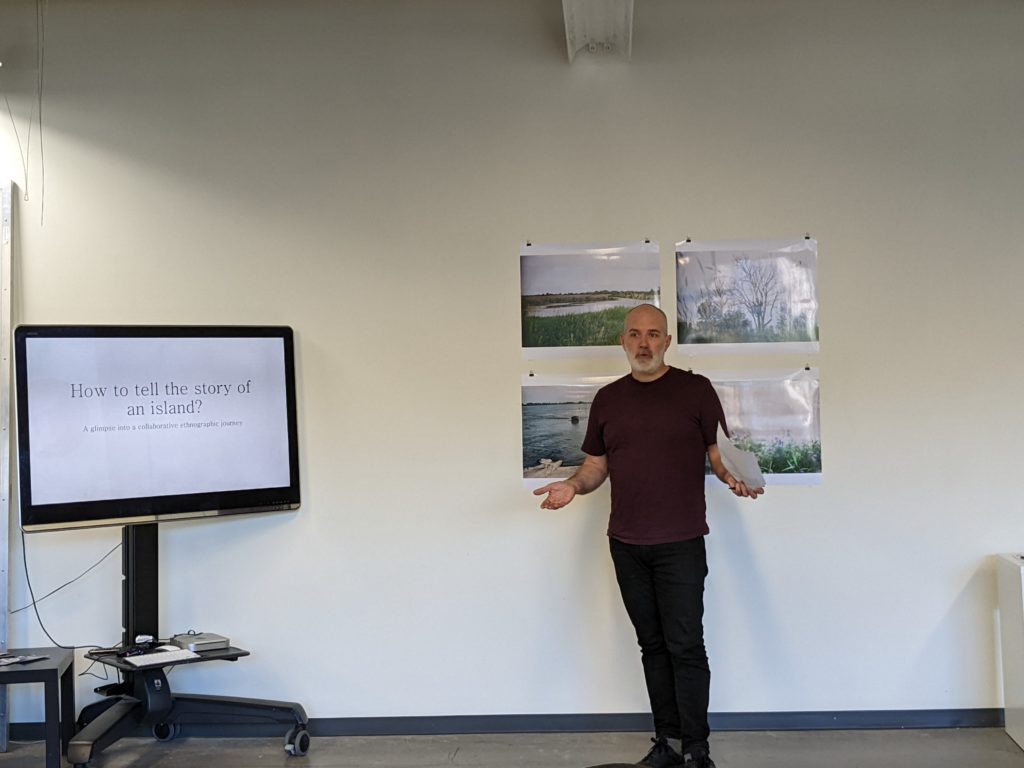
Infrastructures of Ethnography
Funded by the SSHRC, the Infrastructure of Ethnography working group is a collaborative research initiative between Ethnography Labs from universities in Canada and the United States, including Concordia University, University of British Columbia (UBC), University of Southern California (USC), and the University of Pennsylvania (UPenn). This project aims to engage other labs and research groups engaged in ethnographic research to foster community and possibility, as our director Dr. Bart Simon remarked.
Currently, the group is exploring ideas and possible directions. Some of the questions they are asking themselves are: How can ethnography labs better help each other in training graduate students to practice multi-modal and collaborative forms of research? What kind of ecosystems can we create that both facilitate large-scale collaborations in ethnography and lead to its valorization in academia and beyond?
If you would like to take part in these discussions, you are welcome to participate by getting in contact with the project coordinator Melina Campos Ortiz at melina.camposortiz@concordia.ca.
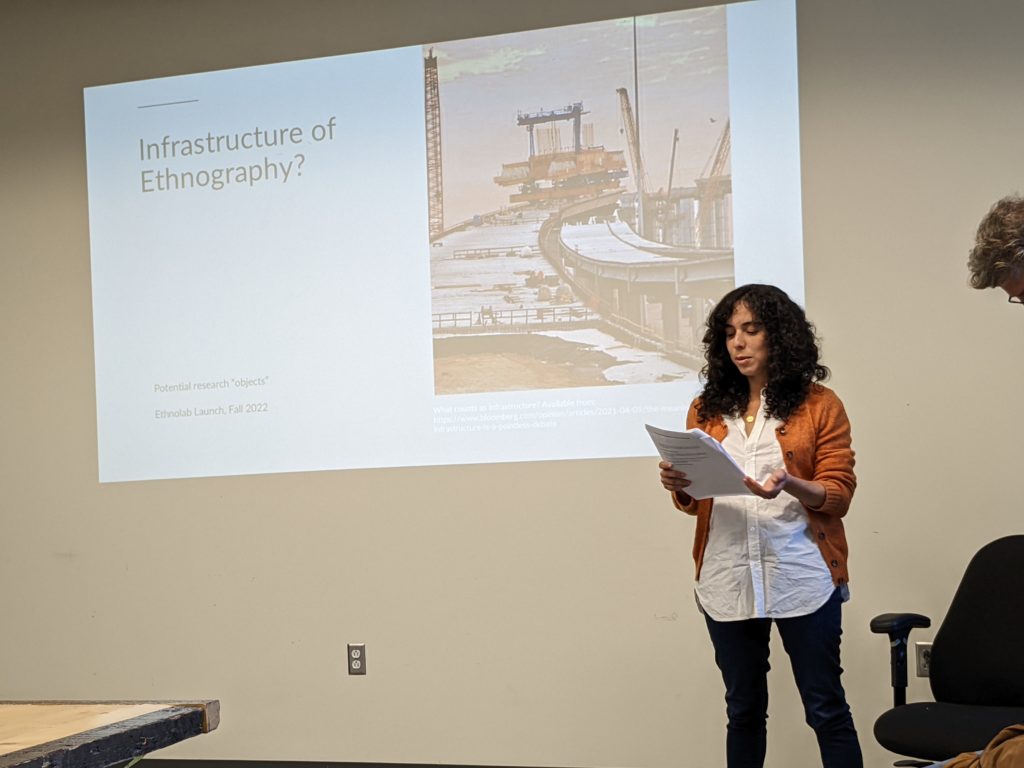
Ethnoblab
The Ethnoblab is a place for members to share ethnographic snippets, field notes, and creative writing pieces. This is a terrific opportunity for members to present their research in an accessible way and reach an audience beyond academia. The team is always open for new contributors, and they are currently looking for a new editorial committee!
Speaker and Workshop Series
The lab is organizing a series of monthly talks and workshops about ethnographic methods at its innovative margins, e.g. design ethnography, sensory ethnography, etc. Looking to engage a wider community of researchers and students beyond the scope of the university, they will be inviting speakers with various approaches to ethnography from universities in Canada and beyond. Let them know if you have an idea you want to put on the table!
We are excited about what’s coming up at the Ethnography Lab this year! Do not hesitate to get in contact with Maya to register your interest at mlamothekatrapani@gmail.com
The Concordia Ethnography Lab was established in 2016 to promote and explore innovative ethnographic research. The Lab gathers ethnographic expertise from across Concordia to foster creative thinking about methodology, to enhance the possibility of research collaboration, and to act as a resource for researchers inside and outside the university who wish to use ethnography to ask questions about the world around them.
